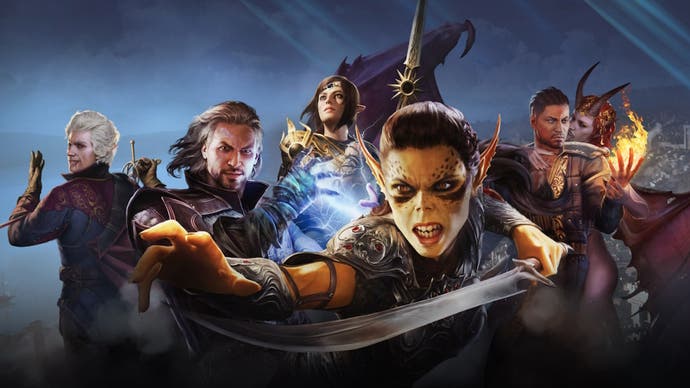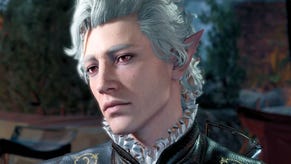22 Baldur's Gate 3 tips for both beginners and advanced combat
No Tiefling matter.
As Baldur's Gate 3 is based on the Dungeons and Dragons ruleset and continues the lore, it can be a little intimidating with its many different systems and choices.
To help you on your journey, we've compiled some beginner's tips and tricks, as well as some more advanced combat tips worth keeping in mind throughout your playthroughs.
For more on Baldur's Gate 3, we've got a piece on its relationship to Dungeons and Dragons, and guides on how to get all companions, Multiclassing, and respecing.
On this page:
Baldur's Gate 3 beginners tips and tricks
The advice below is relevant throughout your campaign and repeat playthroughs, but will be particularly helpful for those just starting their journey and trying to get to grips with the many features available.
Here's our tips and tricks for beginners in Baldur's Gate 3:
Don't Stress about your character build
Although combat can be more difficult for DnD or CRPG newcomers, there's no perfect build that will see you through everything just peachy. Making use of the rest of your party and smart combat decisions is more important than pairing Races with their ideal Classes.
We recommend picking a character combination that seems most interesting to you, as we've found the biggest (and most fun) changes to the game come from how your character interacts with the world with their unique skills, and how others react to you.
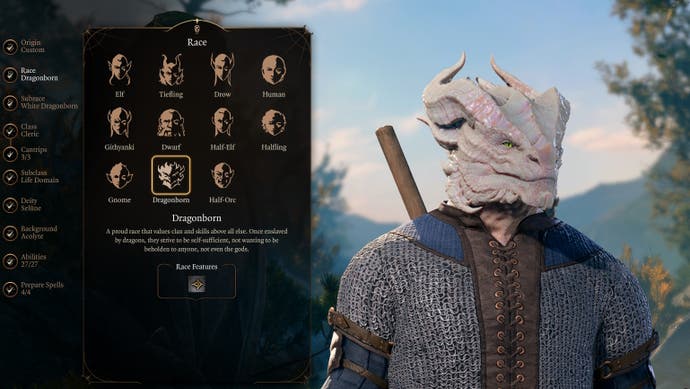
Save often, especially before conversations
We recommend making liberal use of quicksave (F5) and quickload (F8) before any conversation, battle, item use, or entry into a new area. Combat, some item uses, and character interactions rely on rolling in your favour, so it's a good idea to have multiple saves to fall back on! This also saves you resources, like lockpicks, if you fail a roll the first time.
We especially recommend saving or quicksaving before starting conversations with your companions if you plan on romancing them, as certain romance scenes are only available behind these checks.
Saving and reloading is also a great way to see just how different your narrative paths can be in a given situation. Then, you can reload and choose the one you desire.

Hold down ALT to highlight the environment
You should be holding down ALT to see what objects are intractable everywhere you go in Baldur's Gate 3. This often shows loot sources and alchemy materials for you to sift through, and it's also a great way to quickly see if your interaction counts as stealing or a no-no in the eyes of those watching. If the action will be taken badly, the text will be red.
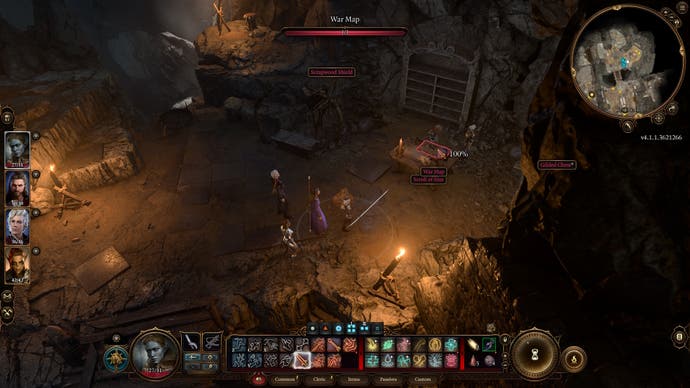
Holding SHIFT shows vision cones
Holding SHIFT during the turn-based view shows everyone's vision cones, which is useful for figuring out if somebody can see you stealing, or doing something else not allowed in that area. It's also great during combat to use before you Hide in order to ensure you really can't be seen by an enemy in that area, saving you from failing and wasting an action.
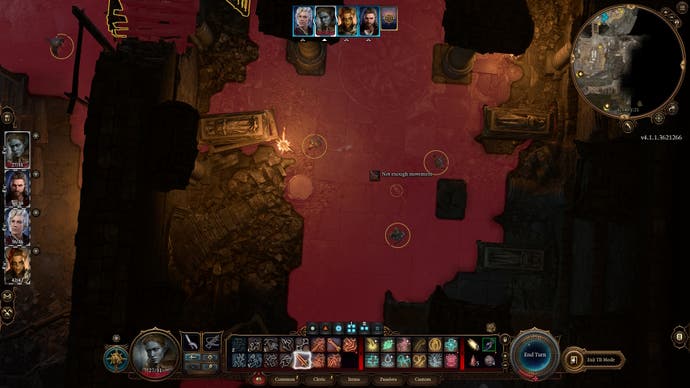
Spells can be used out of combat
Spells can help you achieve success when trying to win approval with a character, and are also a great way to interact with the environment and creatures. For example, we recommend at least one of your party has the Speak with Animals spell. You won't regret it.

Long Rest regularly
On the end of the right-hand side of your hotbar, you'll see multiple resting options. You get two Short Rests a day, which are a great way to quickly restore some HP and Spell Slots - but don't forget to Long Rest too!
Long Resting takes you to camp, so as its apt name implies, takes longer to do. However, Long Resting will fully restore all party members' HP, Spell Slots, and Actions. It's also the only way to get to see certain companion scenes, or progress with personal quests. So even if you don't need to Long Rest for combat reason, you should definitely do it often for the stories!

Remember to use your Bonus Actions
You get at least one Action and Bonus Action for every party member each turn, but some characters have even more Actions than this due to Class perks or other modifiers - so remember to use all of them before ending your turn! Even using up your movement to hide from future attacks is useful.
With this in mind, when choosing spells, it's good to have some you can cast using your Reaction and Bonus Action, so look out for them.

Use the environment in combat
Sometimes, the best combat decision is to take a moment to look around and see what destruction you can cause with the environment, instead of hitting an enemy directly. There could be rocks, chandeliers, or other items dangling from above that can be easily shot down to devastating effect.
You can also use Dip to coat your weapons in something nearby, like Fire. This means when you do attack, you'll likely take more HP off an enemy, bar any resistances.
Or, if you're close enough, we highly recommend that you use the Shove Bonus Action on enemies from high up and watch them take a nasty tumble to their likely deaths. You'll Shove farther with higher Strength and Athletics.
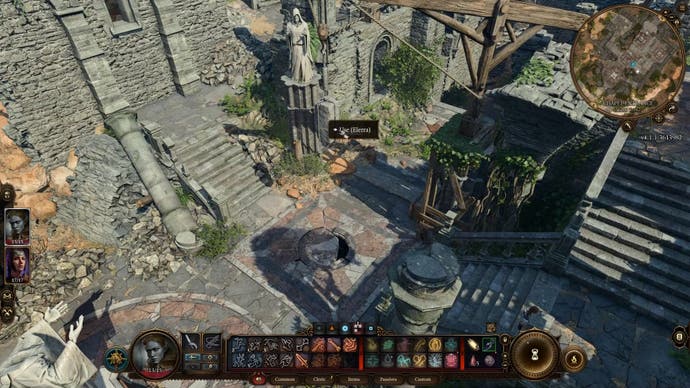
Be wary of enemy Saving Throws
Just because you cast a spell on someone, or you performed a special attack on someone, doesn't mean it will land or take effect. Every time you try to do something to trigger an effect on someone else, the other character gets a chance to make a Saving Throw against it. That's why you'll see some things 'fail' when you try to use them on enemies during combat.
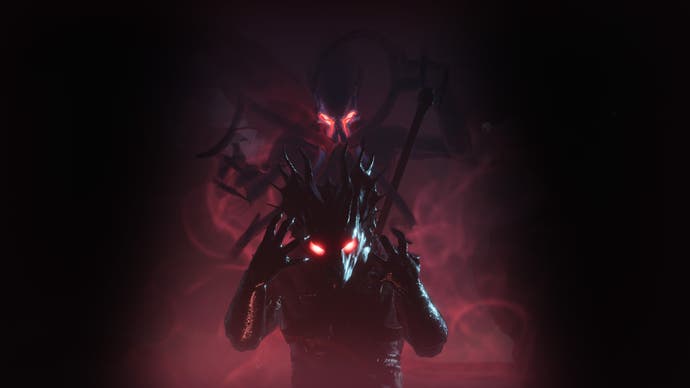
Switch to other party members for conversations
Sometimes another party member's Race or Class can open up additional dialogue options in conversations, or gives you a better chance to roll successfully if they have higher stats than you.
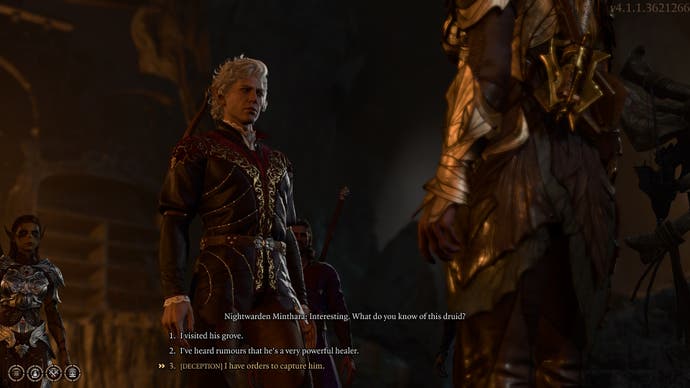
Switch to a companion who has Darkvision to see better
If your character doesn't have the Darkvision feature, switch to a party member who does in dark areas to save you switching about your inventory to equip a torch, or scramble to find candles to light.

Understanding 'AC'
AC is a character's Armour Class, and represents the number enemies have to meet or beat in order to land a hit on them.
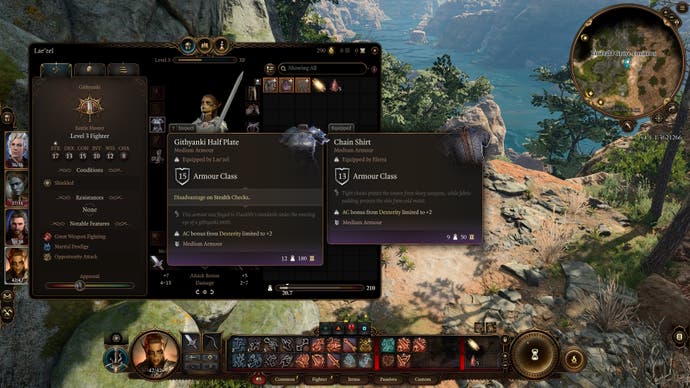
You can quick sell (sort of)
Although we haven't come across a way to mass select items while selling, you can right-click any item in your inventory and select 'add to wares'. Then, the next time you're trading at a shop you can select the 'sell all wares' option while in the 'trade' tab.


Baldur's Gate 3 advanced combat tips and tricks
This advice is for people looking to dig into the more nuanced ways you can manipulate combat in your favour.
Here's our advanced combat tips and tricks for Baldur's Gate 3:
Add potions to your combat hotbar
All those potions you're amassing can be used in combat to increase more than just your HP. You can increase speed, give your party resistances, coat weapons with poison or sharpness - and more! To quickly use potions, we recommend dragging them to your hotbar.

Speaking of potions...
You can throw potions
If a party member doesn't currently have a potion in their inventory, another party member can throw the potion they need at them by using the Throw Bonus Action. Or, you can throw harmful potions at enemies. We haven't seen this happen ourselves, but apparently a potion can even apply to multiple allies if they're in the splash radius.
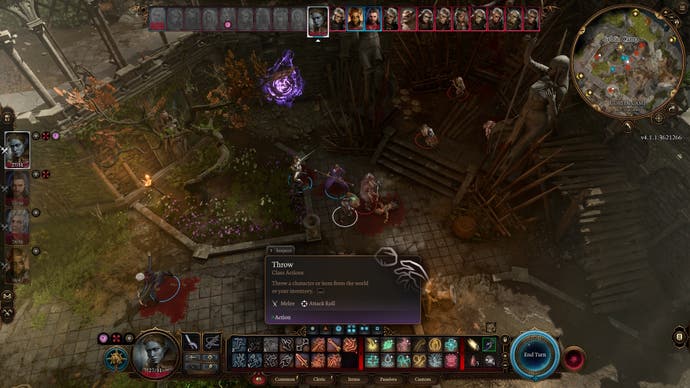
Be wary of 'Concentration'
Some spells require Concentration, which means you have to concentrate to keep them up. You'll do this automatically but it means that people can break your concentration if they attack you, or if you cast another Concentration spell (so don't choose loads of 'Concentration' spells because they'll cancel each other out).
There's a War Caster feat that improves your chances of maintaining concentration, though, so consider taking it.
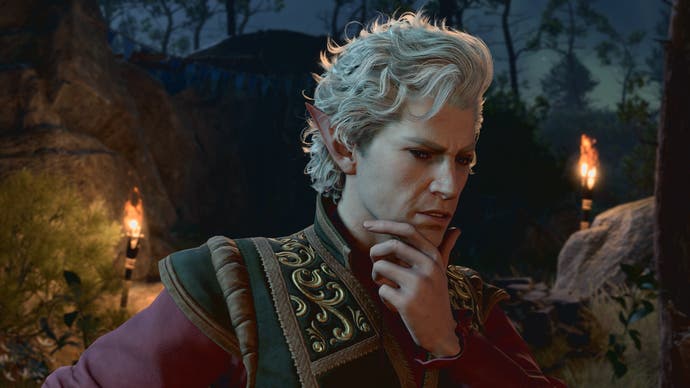
Look out for 'Advantage' perks
Advantage means you get to roll two die and take the highest result, so it gives you a much better chance of succeeding. Disadvantage, meanwhile, does the opposite: has you roll two dice and take the lowest result.
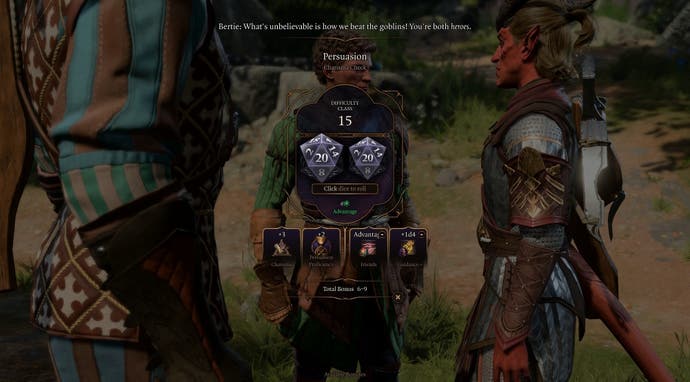
Understanding 'Inspiration'
Inspiration is something the game grants you when you do something of note. It gives you a free reroll whenever you need it. Inspiration sources range from reading certain books, to making particular decisions, to combat achievements.
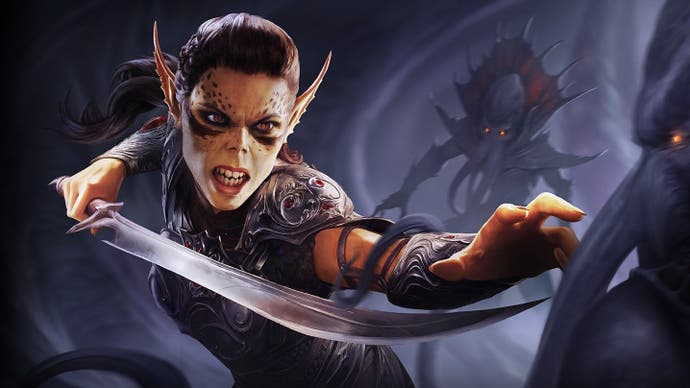
You can switch to turn-based on the fly
You can force the game into turn-based mode by pressing Shift + Space, or by hitting the big button on the right-hand side of the bottom of the screen. This is particularly useful for when you're trying to do something sneaky with precision.
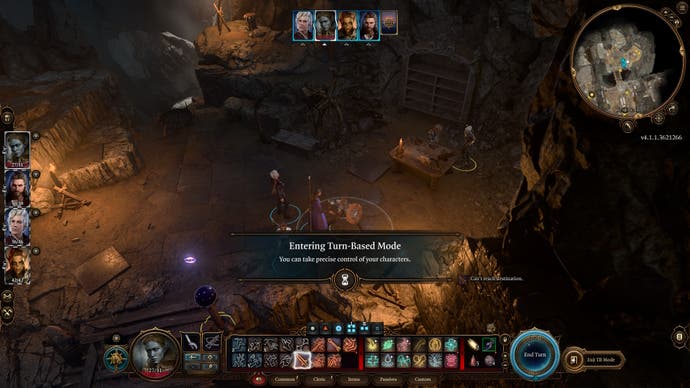
Control the battlefield with positioning
Enemies can't hit you if they can't see you! Well... most of the time. In general, you'll want to hide behind parts of the environment when it's not your turn so enemies either don't have sight of you, or their long-range shots can't land.
Party members who have long-range abilities or attacks like bows and magic are also well-suited for positioning on high ground, then firing at enemies below, preferably who can't target that character. Or, you can attack, then walk away from their line of sight and end the turn. Then, walk back and attack when it's that characters turn again.

Use Grease and combine elements
Grease is a great spell, or throwable, that coats an area of the ground, slowing enemies who walk in it, and potentially causing them to get knocked prone. You can also do things like set fire to the pool of grease and cause AOE damage to those caught in it.
Combining elements and the environment in general is a great way to cause lots of damage, but grease is a nice and easy way to quickly and consistently do so - with the added benefit of slowing and knocking enemies prone.
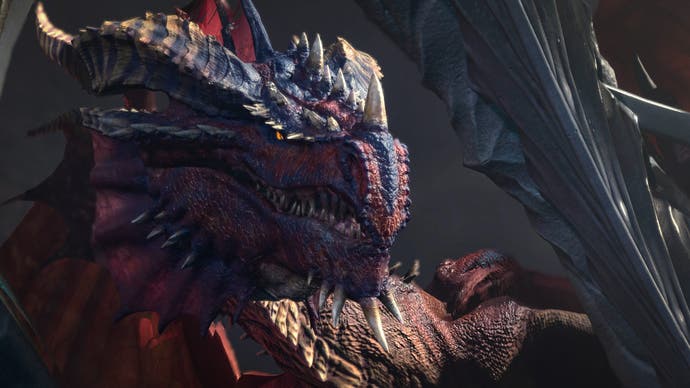
Increase your chances of landing a spell
To increase your chances of successfully landing a spell on someone, increase your spellcasting ability (Intelligence, Wisdom or Charisma, depending on Class) as high as you can. This will raise your Spell Save DC (difficulty check), which is the number enemies have to roll to beat.
You get a +1 with 12 points in a spellcasting ability (like Intelligence), +2 with 14 points in it, +3 at 16, +4 at 18, and then +5 at 20. Push it as high as you can go.
Your Spell Save DC also rises as you level up. This is called your proficiency bonus and relates to the level of your spellcasting class. You get a +2 bonus for being levels one-to-four, a +3 bonus for being levels five-to-eight, and a +4 bonus for being levels nine-to-12, which is as high as you can go in Baldur's Gate 3.
For reference, the Spell Save DC formula is 8 + spellcasting ability modifier + proficiency bonus.

Hope you have a great time playing Baldur's Gate 3!
